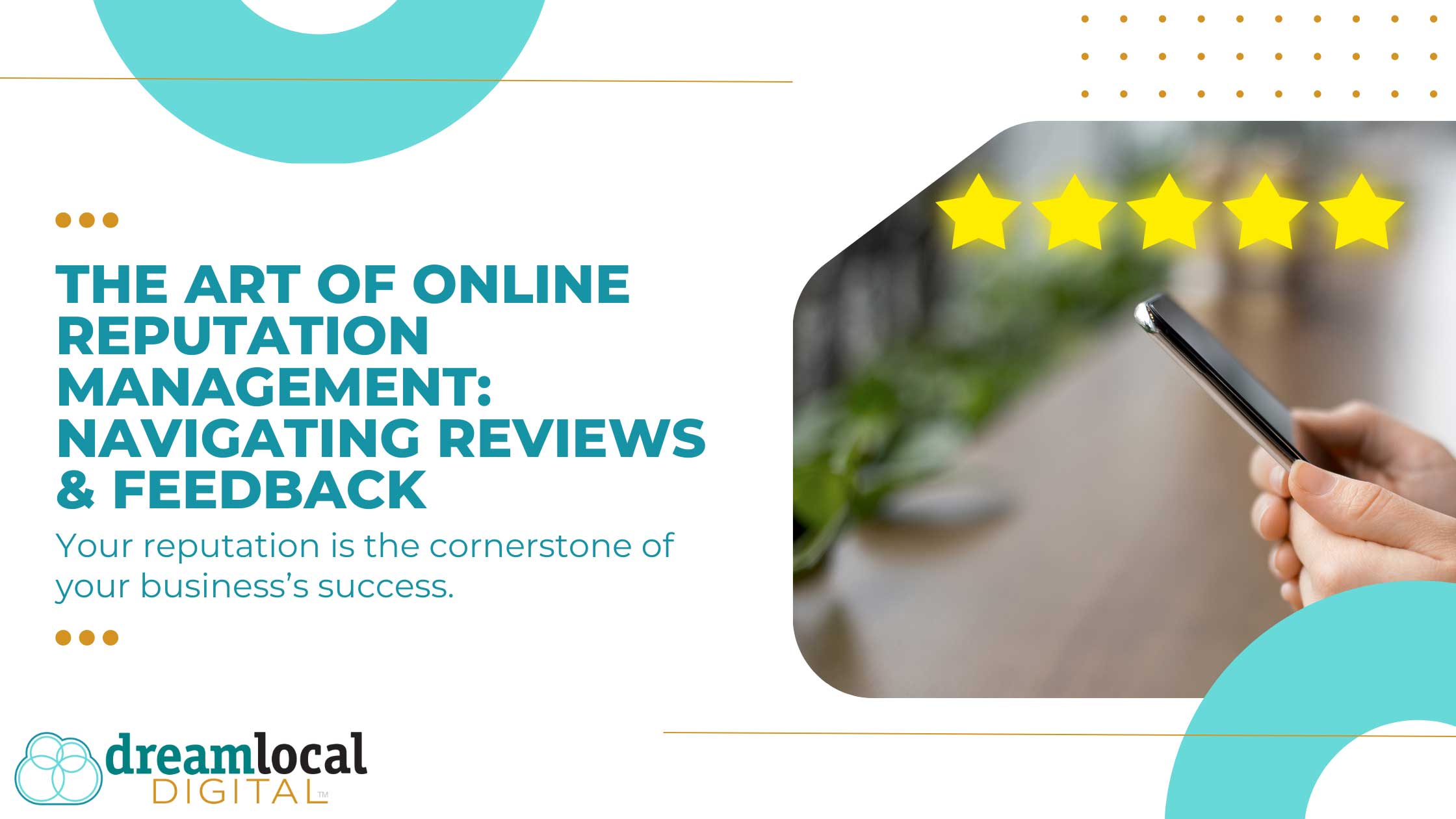 Online reputation management is a cornerstone of your business’s success. Maintaining a consistent brand image and effectively responding to PR crises requires skill and insight.
Online reputation management is a cornerstone of your business’s success. Maintaining a consistent brand image and effectively responding to PR crises requires skill and insight.
Let’s discuss the importance of online reviews in shaping a business’s reputation and online presence. From soliciting reviews to responding to feedback, we unveil the art of effective reputation management tailored for marketers and business owners.
The Importance of Online Reviews
Online reviews serve as virtual word-of-mouth endorsements, influencing purchasing decisions and shaping perceptions of businesses. Most consumers read online reviews before purchasing, so reviews directly impact your sales.
In fact, 84% of consumers will visit one to three review sites before purchasing, and 49% of consumers list positive reviews among the top three purchasing influences. Good online reviews increase customer trust and conversion, with 92% of B2B customers more likely to convert after reading a review they trust.
However, reviews are a double-edged sword as negative reviews hurt your business. Only 13% of consumers would consider a business with a one- or two-star rating. And 3.3 stars is the lowest rating most consumers would choose to engage with. How many stars does your business have?
Your business rating and reviews make or break conversions. Your online reputation influences both short-term and long-term growth vectors. Building a solid reputation becomes especially important as overall trust in brands, companies and organizations declines.
Best Practices for Soliciting Reviews
Boosting the number of positive reviews is a must. So how do you get customers to take the time to submit a review? Here are some tips:
-
Timing Is Key: Request customer reviews at strategic touchpoints, such as after a successful purchase or positive interaction.
-
Personalize the Request: Tailor your review request to each customer by addressing them by name and mentioning specific details about their experience with your business.
-
Make it Easy: Streamline the review process by providing clear instructions and accessible review platforms tailored to your target audience.
-
Incentivize Feedback: Offer incentives or discounts in exchange for honest reviews to encourage customer participation.
-
Follow Up: Send a friendly follow-up reminder to customers who haven’t left reviews, gently encouraging them to share their feedback.
Positive Reviews
Once you have positive reviews rolling in, it’s important to respond to stay connected to your customers and show your appreciation. Here are some ways:
-
Thank the reviewer sincerely.
-
Personalize responses for authenticity.
-
Encourage revisits or other offerings.
-
Consider offering a discount or special.
-
Ask them to share their experience.
-
Regularly monitor and respond to reviews.
Negative Reviews: The Dos and Don’ts
What if the review is not so positive? Here are some tips to handle negative reviews:
-
Respond promptly and professionally, acknowledging the customer’s concerns.
-
Apologize sincerely for any inconvenience or dissatisfaction.
-
Offer a solution to address the customer’s issues.
-
Take the conversation offline to seek a resolution.
-
Follow up after resolving the issue to retain loyalty.
-
Avoid taking negative reviews personally or responding defensively.
-
Never argue publicly; it can harm your reputation.
-
Don’t ignore or delete negative reviews; transparency is crucial.
Choosing the Right Review Platforms
Different types of businesses should prioritize review platforms based on their industry and target audience. That being said, a few review platforms are worth considering regardless of your industry. Review Trackers found that 88% of all reviews come from just four sites:
-
Google: Google is the top review website, with 65% of individuals reading reviews directly from its search results. Google Business Profile (GBP) is a free tool for businesses to manage their online presence and boost visibility.
-
Yelp: The second-most-visited review site, Yelp is indispensable for the hospitality industry. Encourage customers to leave Yelp reviews to boost your rating and discoverability.
-
TripAdvisor: Coming in third is TripAdvisor, with around 25% of consumers visiting this site before purchasing. TripAdvisor is a great site for those in the hospitality and travel industry.
-
Facebook: Facebook, a versatile review platform for any industry, is the fourth-most-visited review site with just under 25%.
Here are some other review websites to consider based on industry:
E-commerce:
-
Amazon
-
Google Shopping
-
Trustpilot
Hospitality:
-
Expedia
-
Hotels.com
-
Airbnb
-
Booking.com
B2B Services:
-
G2
-
TrustRadius
-
Capterra
-
SoftwareAdvice
-
GetApp
Finance Industry:
-
Bankrate
-
NerdWallet
-
Credit Karma
Service Providers:
-
HomeAdvisor
-
Thumbtack
-
Angie’s List
Ready to take control of your online reputation and boost conversions? At Dream Local Digital, we help you maintain your good name with monitoring and resolution services. With our proven strategies and personalized approach, we’ll enhance your online presence, turn negative reviews into opportunities, and drive more business conversions. Contact Dream Local today.
